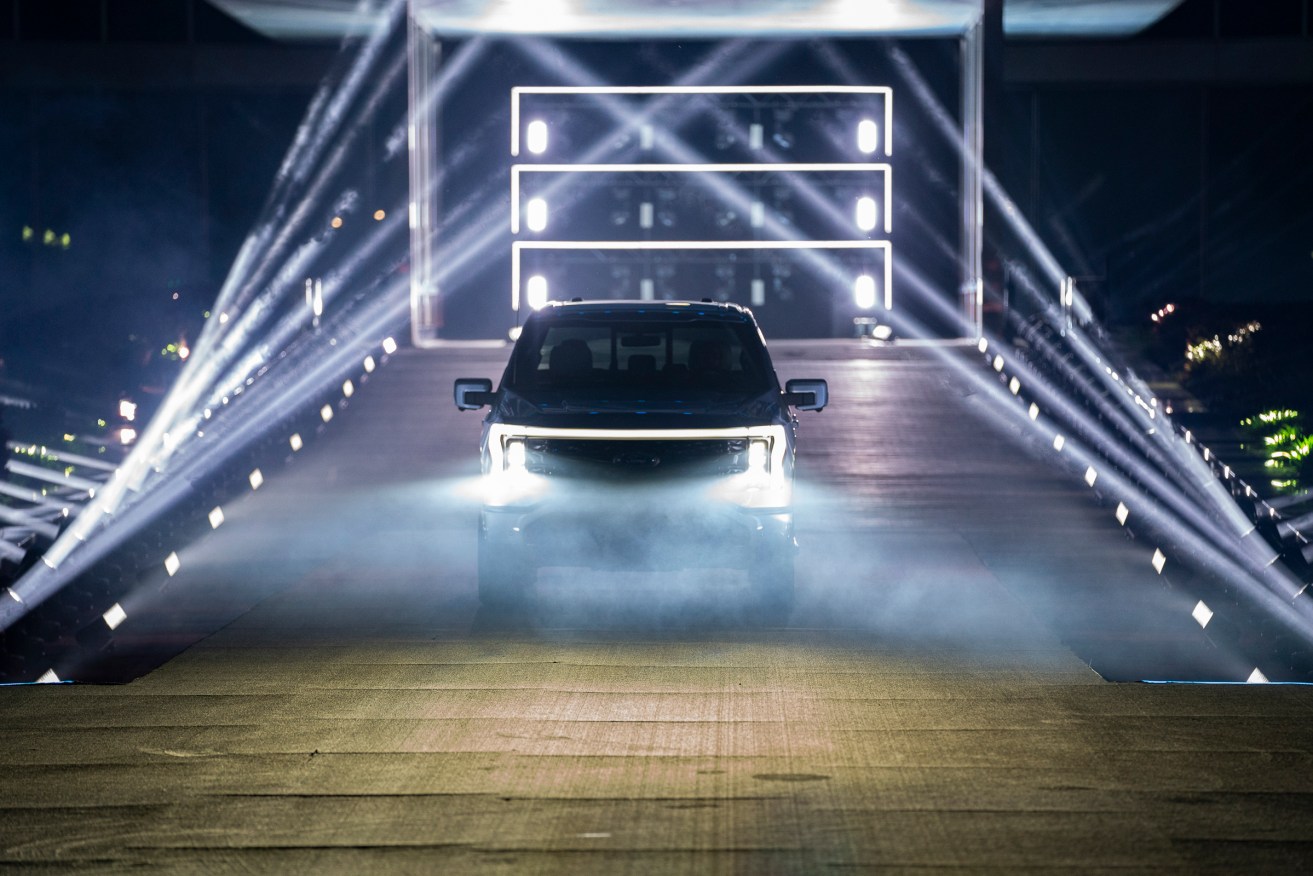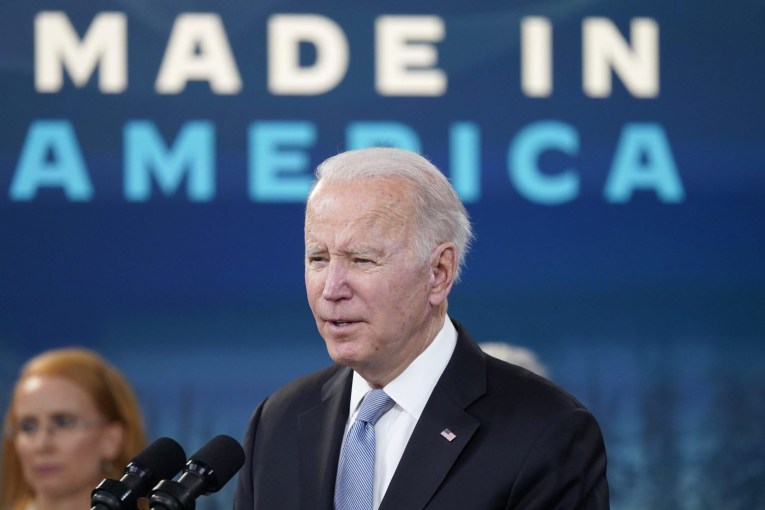When it comes to electric vehicles, Queensland still has the hand brake on
Consumers want to reduce their reliance on fossil fuels, but not every government supports the move to electric vehicles, as Julia Huber found.

Ford Motor company unveiled the new all-electric F-150 Lightning pickup truck at an event outside the Ford World Headquarters in Dearborn, Michigan on May 19, 2021. (Photo by Dominick Sokotoff/Sipa USA)
The recent Climate Summit saw many countries stepping up to the bar, increasing their climate goals and narrowing the 2030 emissions gap by around 12-14 per cent – many deciding the implementation of electric vehicles is one of their most viable options to do so.
Yet in Australia, it seems only the ACT got the memo.
That is despite more people seeing the benefit, for themselves and the environment, of owning an electric vehicle or EV.
“We should be implementing [electric vehicle incentives] so that everyday people and … teenagers looking to purchase their new cars can have that ability to get straight into the electric vehicle market rather than having to purchase older cars that are worse for the environment,” said 41-year-old Graceville mother of three, Carrie Hanlon-Flux.
It seems most people would, if given the chance, buy an electric vehicle over a vehicle with an internal combustion engine (ICE). In Queensland, the registration of privately-owned EVs increased by 143 per cent from 2019 to 2020, as the Palaszczuk Government’s Queensland Electric Super Highway (QESH) rolled out and more affordable models became available.
So, are electric vehicles the future for meeting Australia’s climate goals? If we continue travelling the way we are now, it seems unlikely.
The ACT remains the state with the most comprehensive electric vehicle incentives in the country, currently offering zero-interest loans of up to $15,000 for electric vehicles, an exemption from stamp duty charges completely, and increasing their 20 per cent discount to free registration on May 1st this year. That puts them well down the track ahead of Queensland.
Of course, even the ACT pales in comparison to our international cousins.
By now, most European countries offer some form of tax exemption, purchase grant or benefits scheme – Germany offering grants up to $15,000 or $17,500 for electric vehicles depending on where you live, as well as tax exemptions and general benefits including free parking, reserved parking spaces and the use of bus lanes. They also have subsidies that allow for purchase grants up to $83,000 for home charging stations – making not only the cars, but also the required infrastructure, affordable for the average Joe.
All this makes Queensland’s 1-2 per cent discount on stamp duty for new electric vehicles look like a rather paltry attempt at catching up with the big kids in the playground.
In his 2019 election campaign in response to Bill Shorten’s proposed EV policy, Prime Minister Scott Morrison said, “[An electric vehicle] is not going to tow your trailer. It’s not going to tow your boat. It’s not going to get you to your favourite camping spot with your family.”
While Ford in the United States has recently unveiled another electric vehicle that would put that myth to bed – President Joe Biden even took it for a drive – the Morrison government has done little to increase the uptake of EVs in Australia.
Federal Liberal MP for Ryan, Julian Simmonds, insists “the Morrison government is committed to increasing consumer uptake of EVs across the nation by supporting practical policy measures to make them more accessible and effective”.
“This is an exciting and innovative sector that will reduce emissions and we will continue to work closely with the private sector to make the purchase of EVs for everyday Australians more affordable,” Simmonds said.
Four years ago, the Palaszczuk government released ‘The Future is Electric: Queensland’s Electric Vehicle Strategy,’ however things are moving slowly. It would also be nice to have some support from our local councils; at this point, Brisbane City Council offers half-price parking in only two locations, King George Square Car Park and Wickham Terrace Car Park, and has a limited number of charging stations for those who already own EVs.
Martin Stephenson, 52-year-old IT consultant, said that, because the transport sector remains the second highest producer of greenhouse gas, after stationary energy and on par with agriculture, “converting the transport sector to electric vehicles is probably the easiest …, fastest, cheapest, most sensible way to bring these emissions down.”
Indeed, a recent study by the Plug-in Hybrid and Electric Vehicle Research Center in California and Blue Vine Consultants in the UK suggested electric vehicle incentives do, in fact, increase EV sales and, subsequently, “result in lower energy consumption, greenhouse gas emissions, and urban air pollution compared to internal combustion engine vehicles”.
Which raises the question – why doesn’t Queensland have any substantial EV incentives?
Mathew Antoniolli, creator of the Brisbane-based People Who Are Politicians podcast series, explained that “Even though we have a Labor government, which you would consider … progressive, we are still a fairly conservative state so [the government has] to balance that.”
“A lot of it is the politics – what will people think if we start incentivising it too much? People who are working in … [the] fossil fuel industries are going to start panicking because suddenly we’re not selling as many [internal combustion vehicles]. But, it’s a move that should happen.”
Asked about how the governments may view this issue, Antoniolli said, “Governments tend to think it’s consumer led, which I guess is only natural because if there is no [demand] for it … what’s the point?”
“[The government is] looking for people to look to it first before they … try to cut the price down for them.”
It might be a long road.
InQueensland’s Media Academy is a partnership involving Education Queensland and UQ, teaching high school students about critical thinking and the journalism skills needed to develop the next generation of public interest journalists. Their stories will be published regularly by InQueensland.









